AI Agents, ChatGPT's OS Shift & What the Google Leak Reveals | HighDegree* - Issue 10
Plus: whether backlinks still matter in AI search + practical SEO moves for 2025
Hi friends,
Welcome to the new issue of HighDegree*: Cutting Through the Noise in SEO & Digital Marketing
Search is changing faster than ever—and the noise around AI agents, “GEO,” and algorithm secrets can be overwhelming. This week, we’re cutting through the hype with five essential reads: how enterprises are deploying AI agents (and whether you should care), OpenAI’s plan to turn ChatGPT into an operating system, why traditional SEO still works in the age of AI Overviews, what Google’s leaked API documents reveal about ranking, and a data-backed look at backlinks in AI search.
Let’s jump in.
➞ In this Week
AI Agents: What Walmart Does (and What You Should Do Now)
OpenAI Wants ChatGPT to Be Your New Operating System
SEO Isn’t Dead, It’s Just Expanding Into AI Search
What Google’s Internal Leak Reveals About On-Page SEO
Backlinks Still Matter in AI Search, But Quality Beats Quantity
➞ Subscribe
If you are not subscribed to HighDegree* Yet, please subscribe to us by clicking the “Subscribe” button below. I will post every issue to HighDegree* substack version, so you can get it instantly in your inbox every time I hit publish!
➞ AI Agents: What Walmart Does (and What You Should Do Now)
Google predicts every enterprise will soon use multi-agent systems, AI agents that work together to accomplish complex tasks. Walmart is already there, using agents like “Sparky” for customer shopping, “Marty” for supplier management, and digital twins that predict equipment failures and dispatch repair instructions. They connect these agents using Model Context Protocol (MCP), which lets any language model talk to any tool without custom code. For most businesses, though, the tech is still too new and expensive.
Marie Haynes recommends starting small: use an LLM daily, create reusable Gemini Gems, learn basic coding with AI tools, and test your site with agentic browsers like ChatGPT Agent or Project Mariner to ensure AI can navigate your forms and checkout flow. Don’t build full agent systems yet, just get comfortable with the building blocks.
Read the full report from mariehaynes.com ➞
The next big shift isn’t just agents working for you—it’s how platforms like ChatGPT are evolving to host them.
➞ OpenAI Wants ChatGPT to Be Your New Operating System
Nick Turley, head of ChatGPT, is drawing inspiration from web browsers to transform ChatGPT into a platform where third-party apps live. With 800 million weekly users, ChatGPT is moving beyond chat: apps from Expedia, DoorDash, and Uber will soon let you book, order, and transact without leaving the interface. Turley sees this as the “delivery vehicle” for OpenAI’s mission to distribute artificial general intelligence. The company is learning from past flops like the GPT Store by embedding apps directly into core conversations, making them more discoverable and useful. For developers, this means access to a massive audience, but also new questions about data privacy, app placement, and whether companies will pay for preferential spots.
Turley says transparency is non-negotiable, and OpenAI is building features like partitioned memory so users can control what data apps see. The future may look less like Google and more like an app-filled operating system where AI handles the busywork.
Read the full report from techcrunch.com ➞
While OpenAI builds its ecosystem, traditional search is evolving too, but maybe not as radically as the headlines suggest.
➞ SEO Isn’t Dead, It’s Just Expanding Into AI Search
You’ve seen the panic: “SEO is dead,” “Google Zero is coming,” “optimize for GEO now.” Tom Critchlow and the Raptive team cut through the noise with data. Yes, AI Overviews appear in over 30% of queries and can drop click-through rates by 30–40% when they show up. But search volume is actually growing, not shrinking, ChatGPT and other AI tools are additive, not replacements. The real shift is that zero-click searches jumped from 56% to 69% in the past year, hitting non-food verticals hardest (recipe keywords still show AI Overviews only 0.4% of the time).
The solution? Double down on modern SEO: create original, helpful content for real people, strengthen your expertise and authority, publish consistently, fix technical health, and build a trusted brand. Raptive’s data shows sites ranking in the top three traditional results are twice as likely to also appear in AI Overviews. Quality still wins, and new opportunities like Google Discover are growing. Don’t chase “GEO” snake oil, focus on the fundamentals.
Read the full report from raptive.com ➞
Speaking of fundamentals, Google’s leaked API documents gave us the clearest picture yet of how ranking actually works.
➞ What Google’s Internal Leak Reveals About On-Page SEO
In March 2024, Google accidentally published 2,500 pages of internal API documentation covering 14,014 ranking attributes. Shaun Anderson’s analysis confirms what Google has long denied: there is no single algorithm. Instead, ranking happens through a pipeline, Mustang scores content quality, T* measures topical relevance using anchors, body text, and clicks, NavBoost re-ranks based on 13 months of user behavior, and Twiddlers apply final editorial tweaks. The leak proves Google uses a site-level quality score (Q*), tracks Chrome browsing data for popularity signals (P*), and maintains a “sandbox” for new domains (despite years of denials). It also confirms that Google measures content effort, an AI-driven score of how hard your content would be to replicate and applies a documentHistory penalty to new URLs.
The takeaway: optimize for the entire pipeline, not just keywords. Engineer for “good clicks” (long dwell time, no pogo-sticking), use evergreen URLs from the start, update substance not just dates, and treat site authority as your primary goal. Every new article should add to your topical authority, not dilute it.
Read the full report from hobo-web.co.uk ➞
One question looms large in this new landscape: do backlinks still matter when AI answers questions directly?
➞ Backlinks Still Matter in AI Search, But Quality Beats Quantity
Semrush and Kevin Indig analyzed 1,000 domains to see how backlinks affect visibility in AI-generated answers across ChatGPT, Gemini, Perplexity, and Google AI Overviews. The verdict: backlinks matter, but only after you cross an authority threshold. Domains with higher Authority Scores (a composite of link quality, referring domain diversity, and traffic) appear far more often in AI answers, but small link wins won’t move the needle until you reach stronger overall authority. Surprisingly, nofollow links perform almost identically to follow links, and image-based backlinks show even stronger correlations than text links once a site has some credibility. The study found ChatGPT and Perplexity weigh link quality heavily, while ChatGPT Search weighs it the least.
The strategy shift: stop chasing link volume and focus on breaking authority plateaus. Earn backlinks from high-authority, topically relevant sites, expand your pool of referring domains, create shareable visual assets (charts, infographics, data diagrams), and don’t dismiss nofollow links from credible sources. AI visibility comes from sustained authority, not one-off link wins.
Read the full report from semrush.com ➞
➞ From Google
Everything from Google search this week —
→ Google Search Console Performance Report Stuck At Sunday October 19 (seroundtable.com)
→ Google: Links, Site Moves & Technical SEO Don’t Fix Quality Issues (seroundtable.com)
→ Google Quietly Signals NotebookLM Ignores Robots.txt (searchenginejournal.com)
→ Google Ads Missed Growth Opportunities Tab (seroundtable.com)
→ New: Google Business Profile Report Negative Review Extortion Scams (seroundtable.com)
→ Google testing AI-generated descriptions for search snippets (searchenginejournal.com)
➞ AI + Social
Find out what’s happening in the social media and artificial intelligence world —
→ Introducing ChatGPT Atlas (openai.com) - The browser with ChatGPT built in..
→ Reddit sues Perplexity, SerpApi over scraping Google Search data (searchengineland.com) - Perplexity and SerpApi disguised bots to scrape Reddit data from Google at ‘industrial scale,’ according to Reddit’s new lawsuit.
→ Reddit expands its AI-powered search to 5 new languages (techcrunch.com)
→ 36 Predictions for Social Media Marketing in 2026 (socialmediatoday.com)
→ Voice Replies and Courses Expansion, New Visual Updates, Ability to Tag Grouped Products, and MORE! (youtube.com) - What’s new from YouTube this week.
→ How Often Should You Post on TikTok? Data From 11 Million+ Posts (buffer.com) - Data from millions of TikToks shared by over 150K accounts paints a clear picture of how often you should post to get more views.
→ Sam Altman says ChatGPT will soon allow erotica for adult users (techcrunch.com)
→ Optimizing Your Content for Inclusion in AI Search Answers (microsoft.com) - Direct from principal product manager of Microsoft Bing.
→ Now you get second chance on YouTube (youtube.com)
➞ Worth Reading
These are the articles that will help you refine your marketing knowledge —
→ New Data Study: What Queries Is ChatGPT Using Behind The Scenes? (nectivdigital.com)
→ Reddit has surpassed Wikipedia in-terms of traffic (x.com)
→ Tracking User Journey for SEO in GA4 (speakerdeck.com)
→ Leveling Up SEO for the AI Era |Tom Critchlow (advancedwebranking.com)
→ Third-Party Sources Drive 85% of Brand Discovery (airops.com)
→ Quick Tip: How OpenAI’s Product Feed Redefines Commerce Data (ipullrank.com)
→ How and Why Google Rewrites Your Hard-Earned Headlines (leadershipinseo.com)
→ How to tell if you were impacted by the August 2025 spam update (and what to do about it) (mariehaynes.com)
→ Ha and you all said backlinks were dead (seoforlunch.com)
→ Next-Level Sitemaps: Advanced Strategies and Creative Uses for SEO (womenintechseo.com)
→ Meta will move React to Linux Foundation to address vendor dominance fears (theregister.com)
→ Sample title here (sample.com)
➞ What This All Means for Your Strategy
The through-line across all five pieces featured in this issue is this: quality, authority, and user satisfaction are no longer soft goals, they’re measurable signals that determine whether you show up in traditional search, AI answers, or agent-driven experiences. The fundamentals haven’t changed; they’ve just become more important.
Start by auditing your site for agentic readiness, strengthen your backlink profile with quality over quantity, and double down on creating content that’s genuinely hard to replicate. Forward this to a colleague who’s drowning in AI search hype, and reply with questions, we read every response.
Until next week,
Nishat from HighDegree*
P.S. Have a question about implementing these strategies? Hit reply – we read every email and often feature reader questions in future issues.
➞ Who is Nishat Shahriyar?
I am a Digital Marketing Strategist, doing this since 2007. Now working as a Product Marketing Lead at Fluent Forms (The best lead generation tool for WordPress), Previously at Fluent Support (The best WordPress Helpdesk Plugin).
Connect with me, if you are not connected through my LinkedIn or Follow me on — X/Twitter - @rednishat


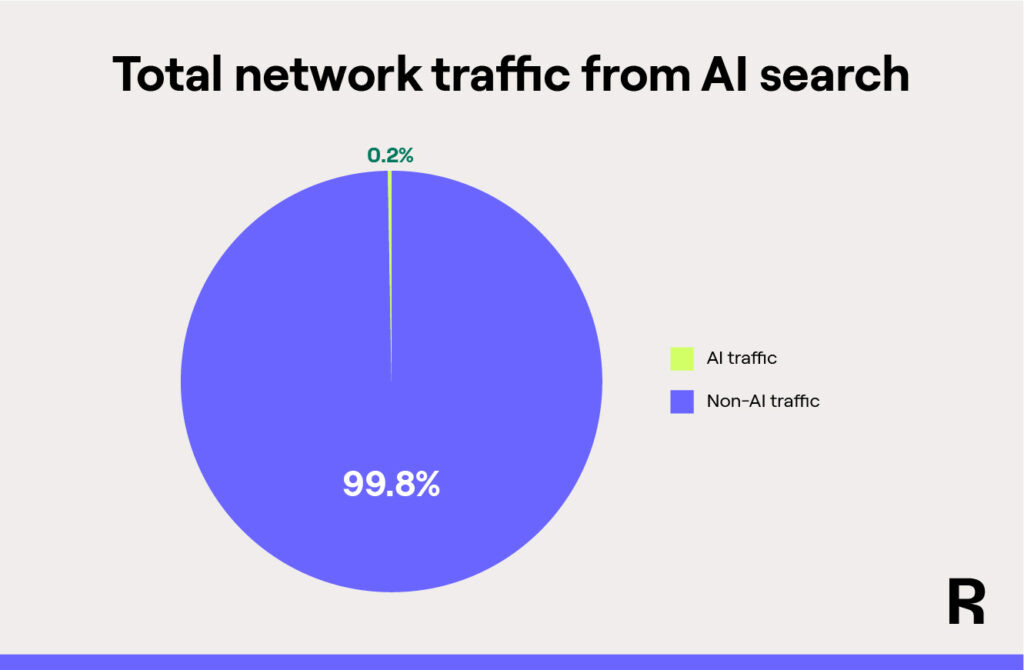
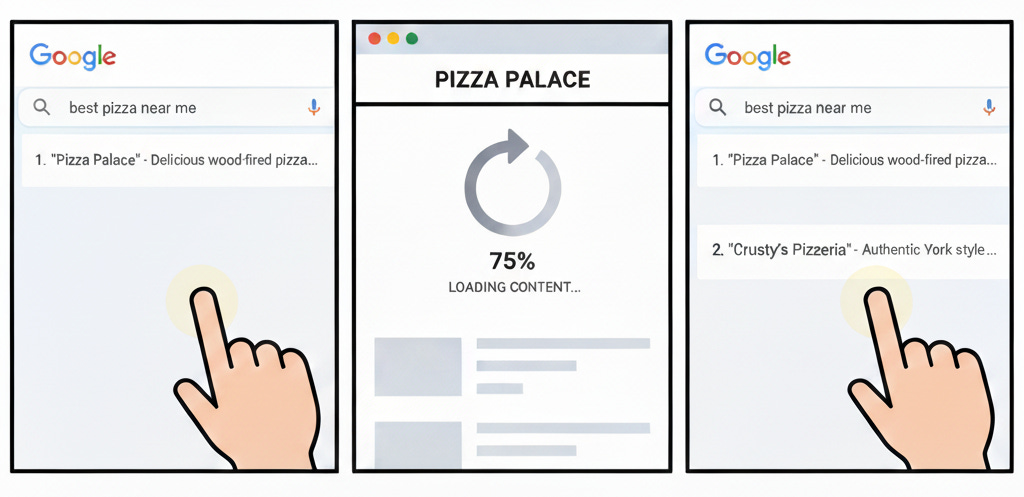
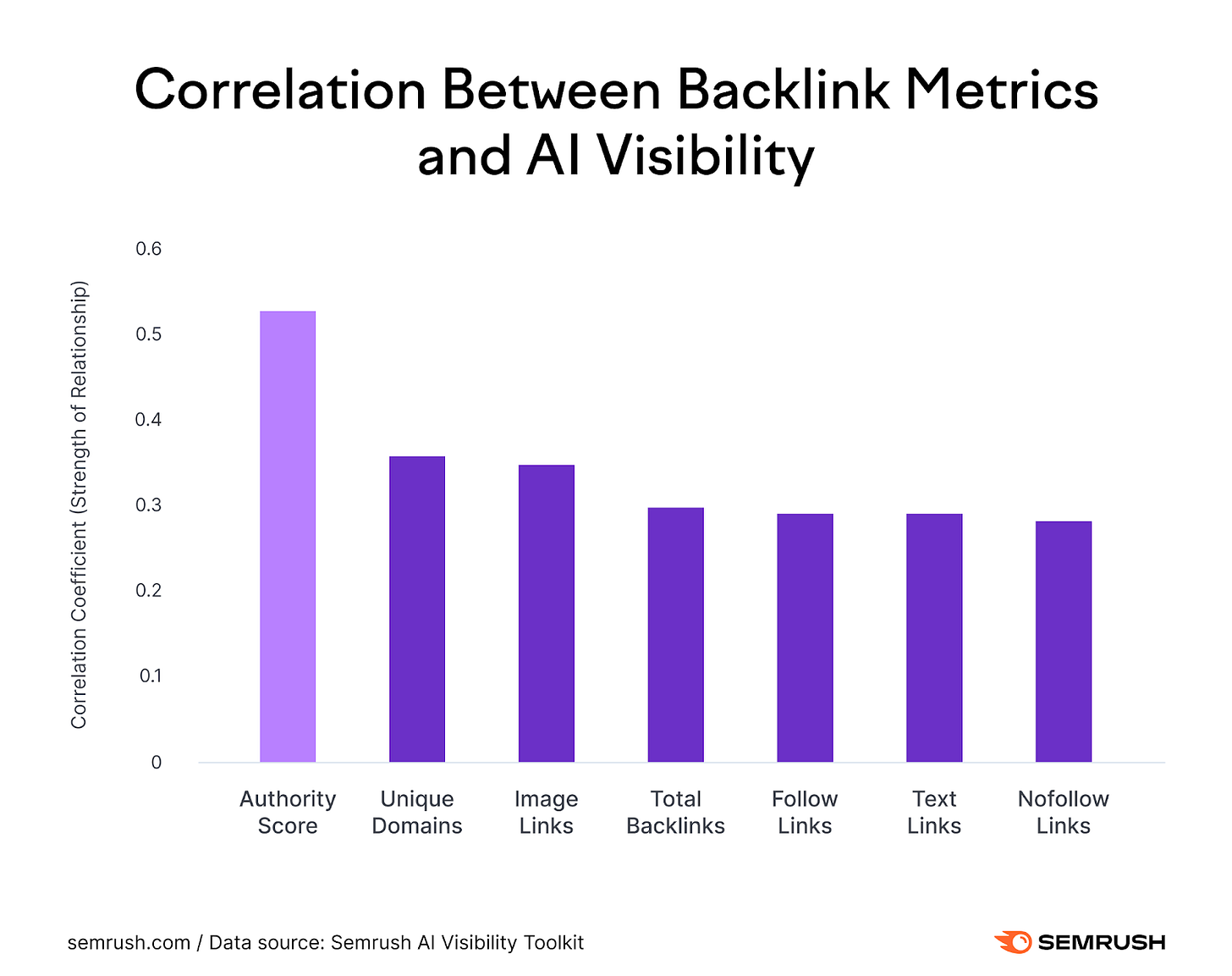
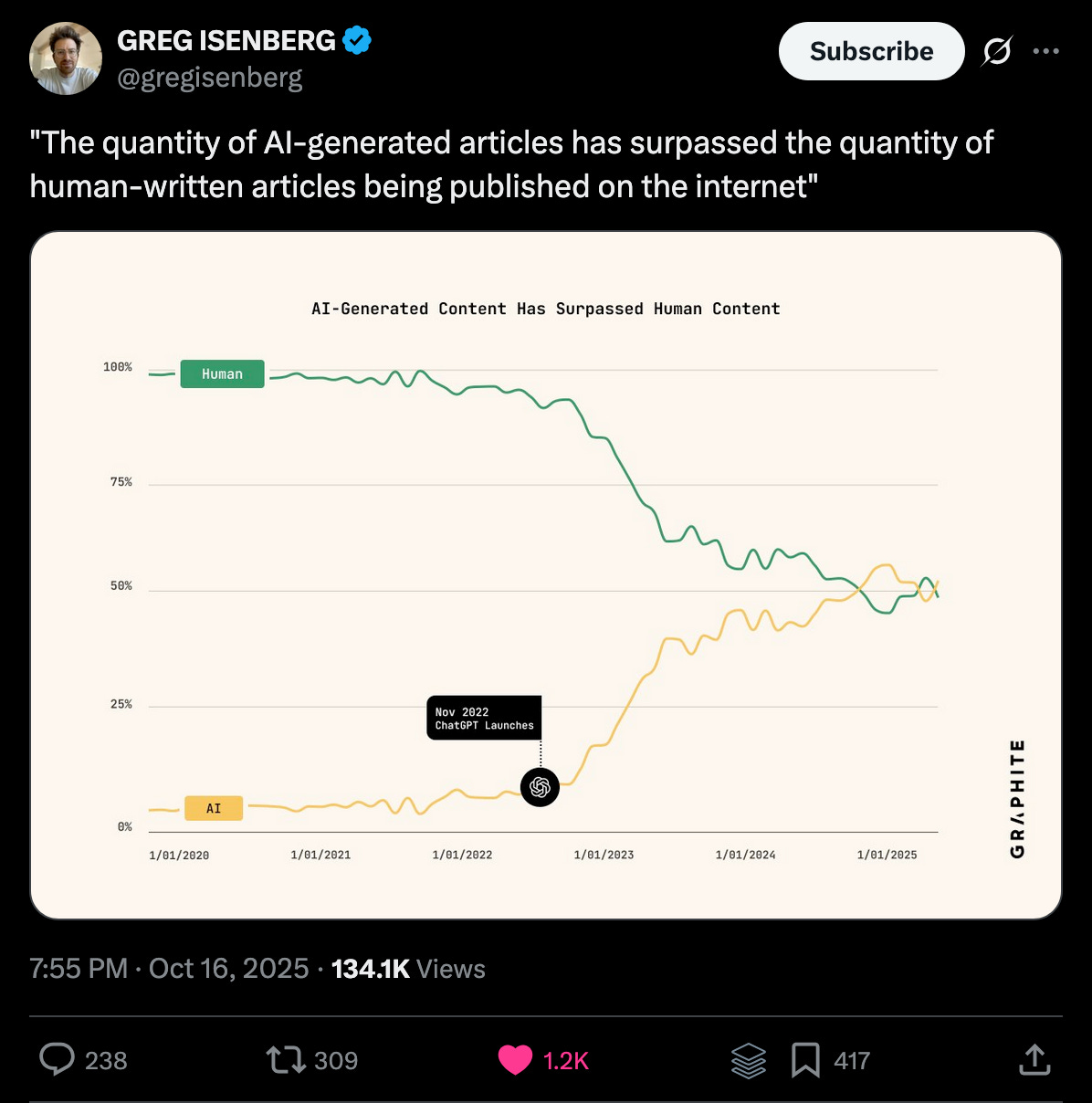
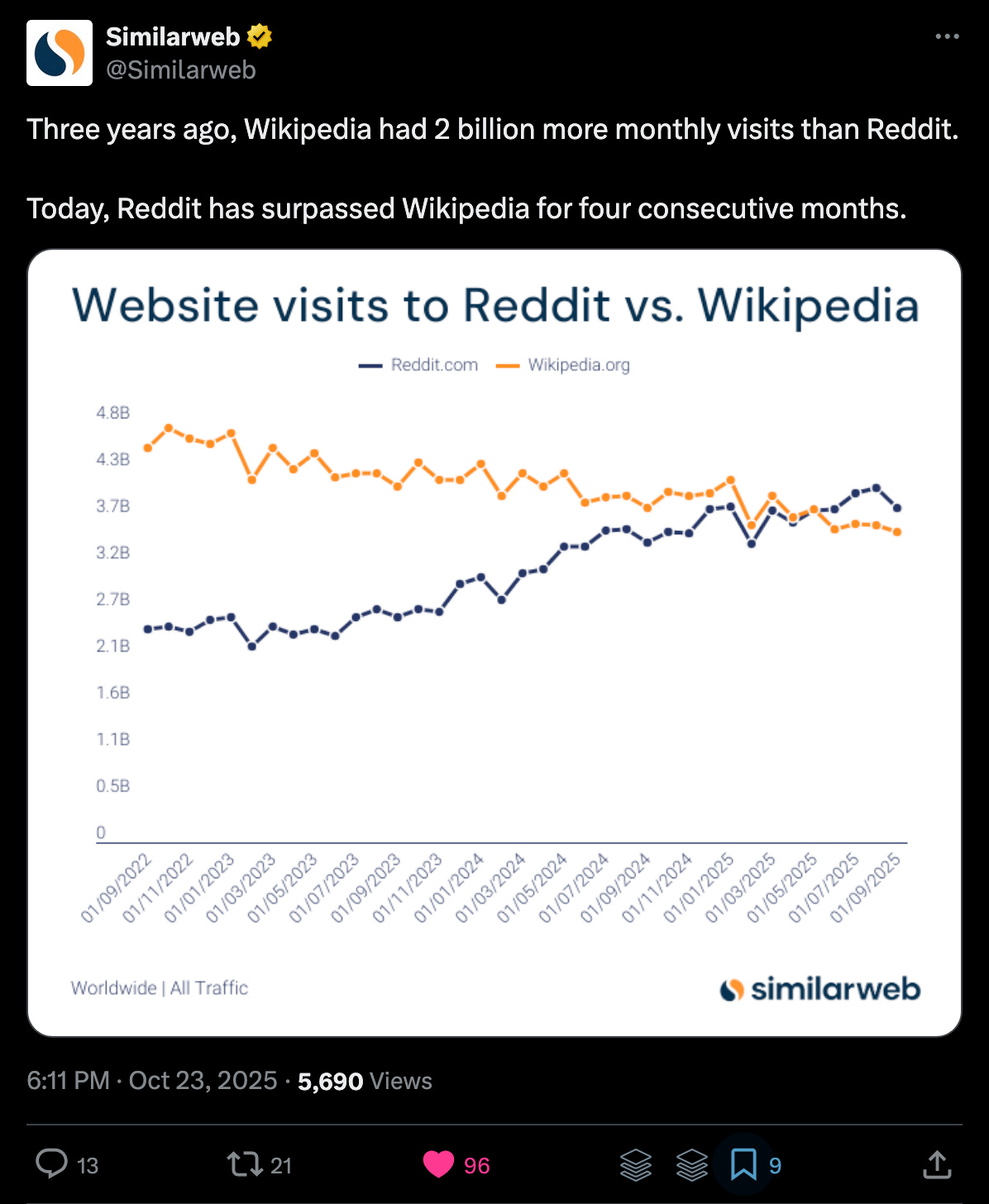
Couldn't agree more; what if these AI agents, like Sparky, fundamentally redefine human-computer interaction making today's operating systems mere legacy systems?